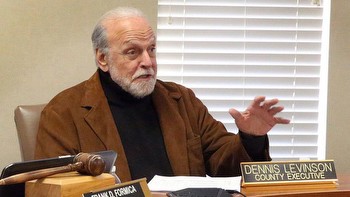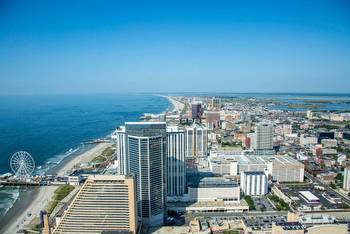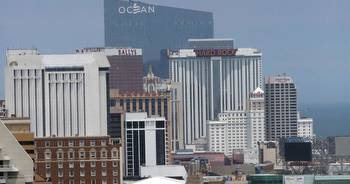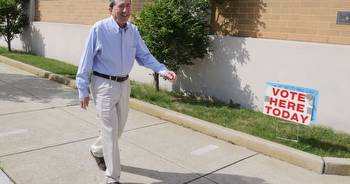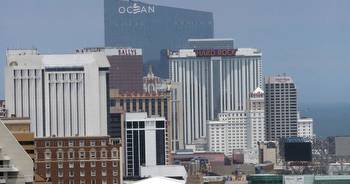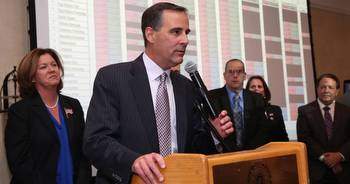Judge to rule this week on stay of decision striking casino PILOT amendments

ATLANTIC CITY — A judge will rule by Friday on the state's request for a stay of his August decision striking down changes to a law that would give the city's casinos millions of dollars in tax breaks.
Atlantic County Superior Court Judge Michael Blee heard arguments Wednesday morning on the request for a stay until an appeal can be heard.
On Tuesday, Gov. Phil Murphy's spokesperson Alyana Alfaro Post said the state has filed an appeal in the case.
In his Aug. 29 decision, Blee said the amended payments-in-lieu-of-taxes (PILOT) law was passed on dubious grounds and violated the state Constitution by giving casinos significant tax breaks to benefit the industry rather than a public purpose.
The amendments, among other things, removed internet gaming and online sports betting revenues from calculations of gross gaming revenue.
Attorney for the state John Lloyd said a stay would allow the status quo to continue while an appeal is heard, and that would maintain stability for city, county and state budgets.
The state has filed a motion for a stay of a judge’s Aug. 29 decision that struck down amend…
Without a stay, "The status quo would be upset, not just creating an inconvenience," Lloyd said, adding it would harm the city, county and school district budgets by throwing uncertainty into the mix, and could force smaller casino properties like Bally's and Resorts out of business.
The possibility of casinos going out of business has been raised since the law was first proposed last fall, with its main sponsor, former state Senate President Steve Sweeney, saying four casinos could close without changes. That claim was not supported in an analysis of casino finances and the law's impact by The Press of Atlantic City and ProPublica. Several industry analysts, shown the news organizations' findings, said they believed the casinos could likely have survived without the additional tax breaks.
Plaintiffs' attorney Seth Grossman, representing the nonprofit Liberty & Prosperity, argued the state is responsible for disrupting the status quo by changing the PILOT law in December.
"We had a status quo for five years — since 2016 when casinos started paying the equivalent of property taxes based on income," Grossman said of the original PILOT law. "It was the state that disrupted the status quo. They didn’t care about stability when they rushed through the legislation ... and arbitrarily excluded a whole stream of income to calculate fair market value."
Lloyd also said the amendments were made to control both the amount of money the casinos had to pay, to protect smaller properties like Bally's Atlantic City, Golden Nugget Atlantic City and Resorts Casino Hotel from closure, and to control the amount that would flow to the city.
"A lot of analysis went into the municipal budget. ... (The state asked) how much should come in, what is the appropriate revenue extraction, the consequence to casinos who need to thrive and need to pay? How much money should be going into the city?" Lloyd said. "It was trending up, the question was, 'How much?' Now that the city was pulled from verge of bankruptcy and healthier, what is the appropriate level of spending?"
Atlantic County will ask the state Supreme Court to take the appeal of a decision in its law…
With the amendment stricken, Lloyd asked, "What now would be the PILOT (payment in lieu of taxes) amount? It's not that simple. It would require a protracted and extensive analysis to be done."
Lloyd said such an analysis could never be done in time for Nov. 1 tax payments to be made.
Preserving the status quo means going back to the original Casino Property Tax Stabilization Act, Grossman said, which requires casinos to pay a PILOT based on their gross gaming income of all kinds.
While internet and sports gaming became a reality after 2016, Grossman said, casinos must have a brick-and-mortar site in Atlantic City to be able to participate in them. That means the value of the casino properties here increased when those types of gaming came online, and that must be reflected in the property taxes they pay.
"It's important to recognize the state Constitution since 1875 has said it's not up to the state government to decide … to quote John Lloyd, 'how much money casinos need to thrive versus how much they need to pay,'" Grossman said. "They are to be taxed by the fair value of the real estate based on recognized principles of appraisal."
He called the 2016 PILOT law a way to get to that figure through analysis of income and said all businesses, from the smallest to the largest, must pay based on those recognized principles.
Otherwise, "whenever government gets in the business of picking winners and losers, the people with the most money and political interests are the winners," Grossman said.








